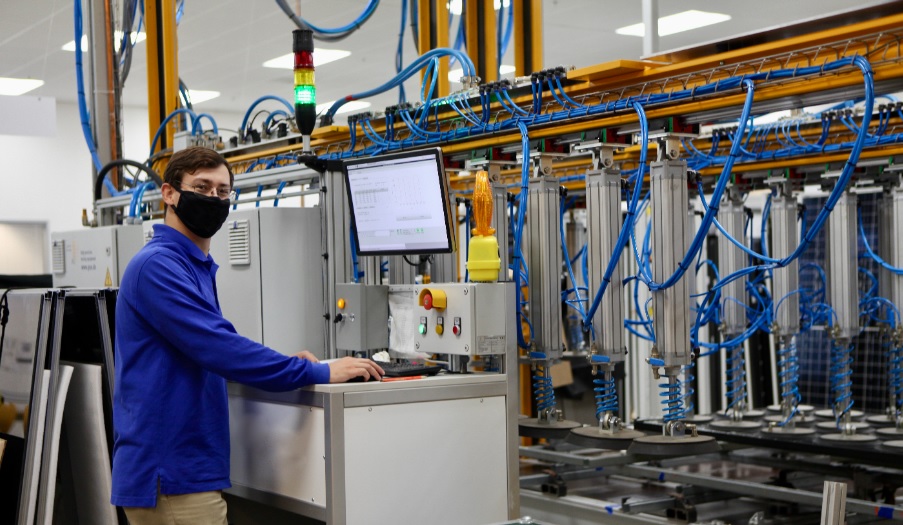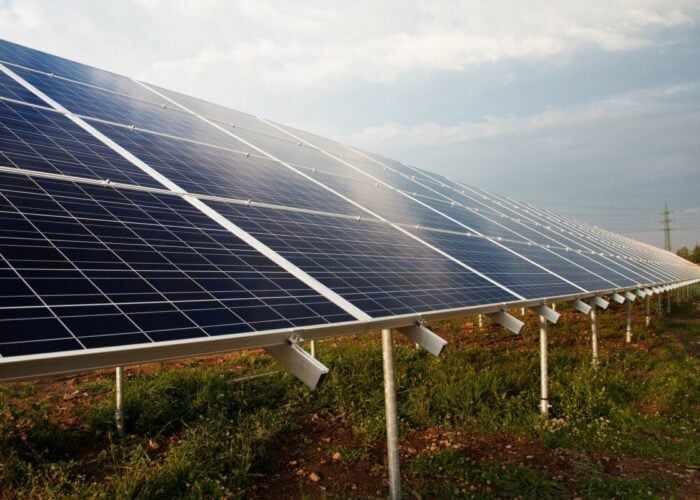
Lab-tested solar module performance has improved over the last year, according to data from US-based technical advisory firm Renewable Energy Test Centre (RETC).
In its 2025 PV Module Index Report, RETC identified 12 manufacturers as “Overall highest achievers”. This represented 13% of the modules tested in the study, an increase from 8% in 2024. Ten of the twelve are Chinese firms, with the addition of India’s Waaree and Japan’s VSUN.
Try Premium for just $1
- Full premium access for the first month at only $1
- Converts to an annual rate after 30 days unless cancelled
- Cancel anytime during the trial period
Premium Benefits
- Expert industry analysis and interviews
- Digital access to PV Tech Power journal
- Exclusive event discounts
Or get the full Premium subscription right away
Or continue reading this article for free
Astronergy, DASolar, DMEGC Solar, JA Solar, Jinko Solar, LONGi, Runergy, SolarSpace, Trinasolar, VSUN, Waaree and Yingli Solar all achieved RETC’s “Overall highest achiever” credit, which requires consistent high achievement across module reliability, performance and quality tests.
However, the report stressed the difference between laboratory testing and real-world deployment and procurement, as well as the geopolitical trends that can impact solar module quality.
Module quality and testing is a growing field in the PV industry, with frequent headlines highlighting issues with glass breakage, cell durability and other technical issues. RETC said that while laboratory reliability and performance testing “trended in a positive direction year-on-year, we remind downstream stakeholders that due diligence for project procurement is considerably more complex than simply entering into a supply agreement with a manufacturer we have recognised for high achievement in PV module manufacturing.”
It continued: “Even the best module manufacturers sometimes make PV modules that underperform.”
25-to 30-year warranties
In conjunction with other industry parties and technology testing firms, including Germany’s TÜV Rheinland, RETC claimed its Thresher Test can “separate the wheat from the chaff” of solar modules on the market.
The company claims that it aims to “probe manufacturing and material quality” to ensure higher standards for PV accreditation beyond the IEC and UL certifications used by much of the industry.
It said that the 25- to 30-year warranties covering many of today’s PV modules require rigorous testing to ensure the products can stand the test of time outdoors, sometimes in extreme environments.
RETC CEO, Cherif Kedir, said: “Unfortunately, testing product samples to International Electrotechnical Commission (IEC) qualification standards for terrestrial PV modules sheds little to no light on the ways in which commercial products tend to fail or wear out prematurely under real-world conditions of use. Differences in performance and reliability only become apparent when we intentionally apply additional stresses with the goal of separating the wheat from the chaff. Subjecting today’s PV modules to RETC’s tried-and-true Thresher Test program—the industry’s first consensus reliability and durability test standard for PV modules—tells a different story.”
2025’s Module Index Report found a “significant” decrease in so-called “red flag” results, which RETC defines as “a measured value that raises questions about a product’s ability to perform reliably in the field…over a 25- or 30-year lifetime.” Less than 3% of its results returned “red flag” findings in 2025, compared with 14% last year.
Combined with the increase in high performers, the report is fairly welcome reading for an industry perhaps starting to emerge from technical issues and concerning reports.
Kedir said: “Though some recent bankability test results are alarming, these are also issues that the technical due diligence community has successfully eradicated in the past or can resolve with improved test standards. So long as we have eyes to see them, we can solve these problems.”
‘shifting supply chains’
Despite some positive technology trends, the report said that changing solar manufacturing supply chains have caused an uptick in “PV cell-related issues, many of which have not been seen in our bankability testing for the better part of a decade.”
“Instability in supply chains, manufacturing locations, and commercial technologies tends to introduce opportunities for deviation from quality,” Kedir said. “Solar project stakeholders must remain vigilant about risks associated with shifting solar manufacturing supply chains.”






